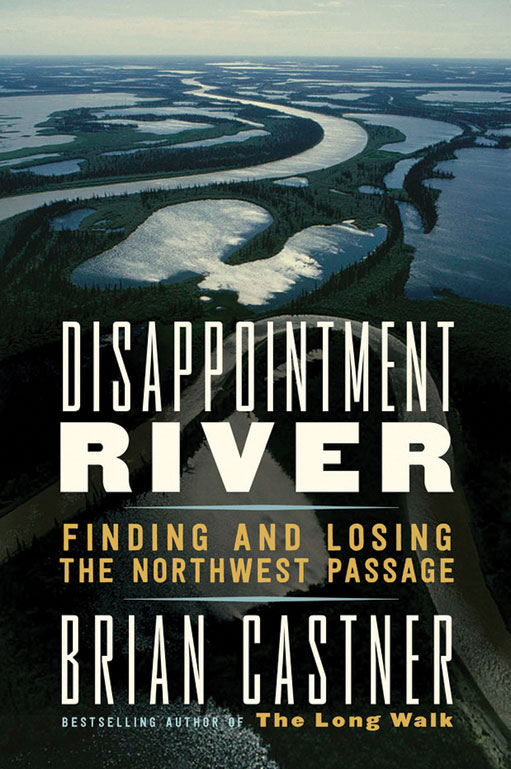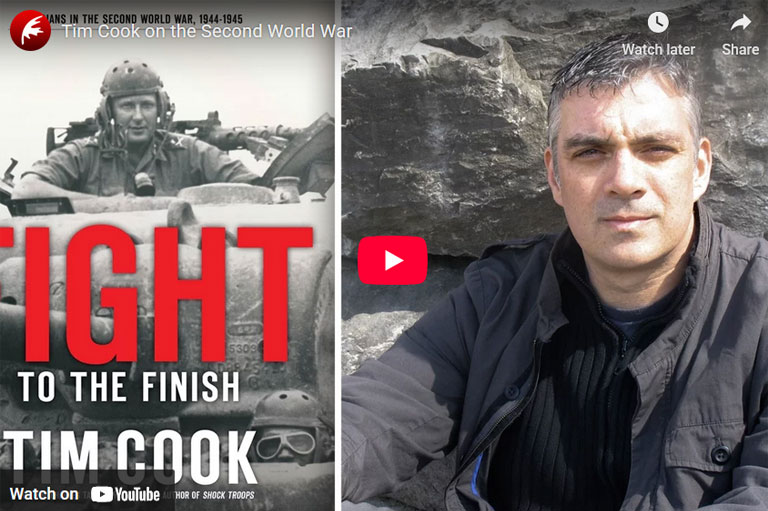Disappointment River

Disappointment River: Finding and Losing the Northwest Passage
by Brian Castner
McClelland & Stewart, 359 pages, $35
The clouds over the mountains to the west of the Mackenzie River looked like “three enormous flying saucers descending on us.” They “were layered, like plates or shelves, the sky behind nothing but black. The temperature dropped twenty degrees.”
Author Brian Castner was retracing the 1789 journey of fur trader Alexander Mackenzie to the Arctic coast. Castner and his paddling companion scrambled ashore and erected their tent, but “the front hit like a concussion, a wall of thickened menacing air. The tent recoiled as if struck, the outer shell suddenly pummelled by wind and fat drops of rain. The whole shelter was vibrating.”
The front stakes tore out, the tent collapsed, and the two men found themselves trying to regroup while “soaked in the driving rain and only half-dressed, boxers and no shirts.”
This is one of many vivid passages from the new book Disappointment River. Castner is a skilled writer who, no mean feat, manages to interweave the tale of his own adventure on the great river with what history-buff Canadians regard as the familiar story of Mackenzie’s epochal quest.
The writing is excellent. But this book feels especially fresh because, while most historians treat fur-trading explorers in either a British or a Canadian context, Castner brings an American perspective to the table.
When was the last time you saw Washington Irving quoted on the fur trade? Right. Yet Castner cites that nineteenth-century man of letters three times. Castner does not ignore the Laurentian thesis — that Canadian economic development came mainly from resource exploitation — or the foundational nature of the fur trade, but he is more inclined to reference the American Revolution or the 1760 capture of Detroit.
“In traditional American mythology,” he writes, “we associate the West with opportunity, but the North is known for hardship. Their conjunction — in the Northwest Passage, North West Company, Northwest Territories — speaks to both ideas. You go north and west to test yourself, but in pursuit of an objective.”
Castner mentions that, before leaving home, he read widely in Canadian newspapers and books. And the paddler is acutely aware of being a foreigner in a strange land. One of his companions makes a joke, he writes, “in an exaggerated northern Wisconsin accent that came off as vaguely Canadian.” He notes that one man he meets has “good looks that I’d call All-American if he weren’t Canadian, born and bred in the North.”
Elsewhere, while driving northwest through rural towns, Castner writes: “‘No wonder Canadians seem to be natural socialists and praise collective effort,’ I thought. ‘Their land is too big, they too few.’”
Again, this is not off-putting but refreshing. Here’s an American showing an interest in a landscape, a social reality, and a history beyond the borders of the United States.
Castner mentions that the Dene of the Northwest Territories and the Navaho of the American southwest share the same ancestry and speak mutually comprehensible languages. He takes care to name Indigenous individuals wherever possible and notes that one eighteenth-century Dene figure guided Europeans to the Arctic coast twice. Before travelling with Mackenzie, Awgeenah — also known as Mistapoose, Nestabeck, and the English Chief — descended the Coppermine River to its mouth with Matonabbee and Samuel Hearne.
Castner and his fellow paddlers — four men joined him for one leg each — canoed 1,810 kilometres in 2016, battling headwinds, exposure, mosquitoes, thieves, and white-water rapids. He tells their gruelling story while also bringing Alexander Mackenzie vividly to life. This book is a keeper.
Themes associated with this article
Advertisement




